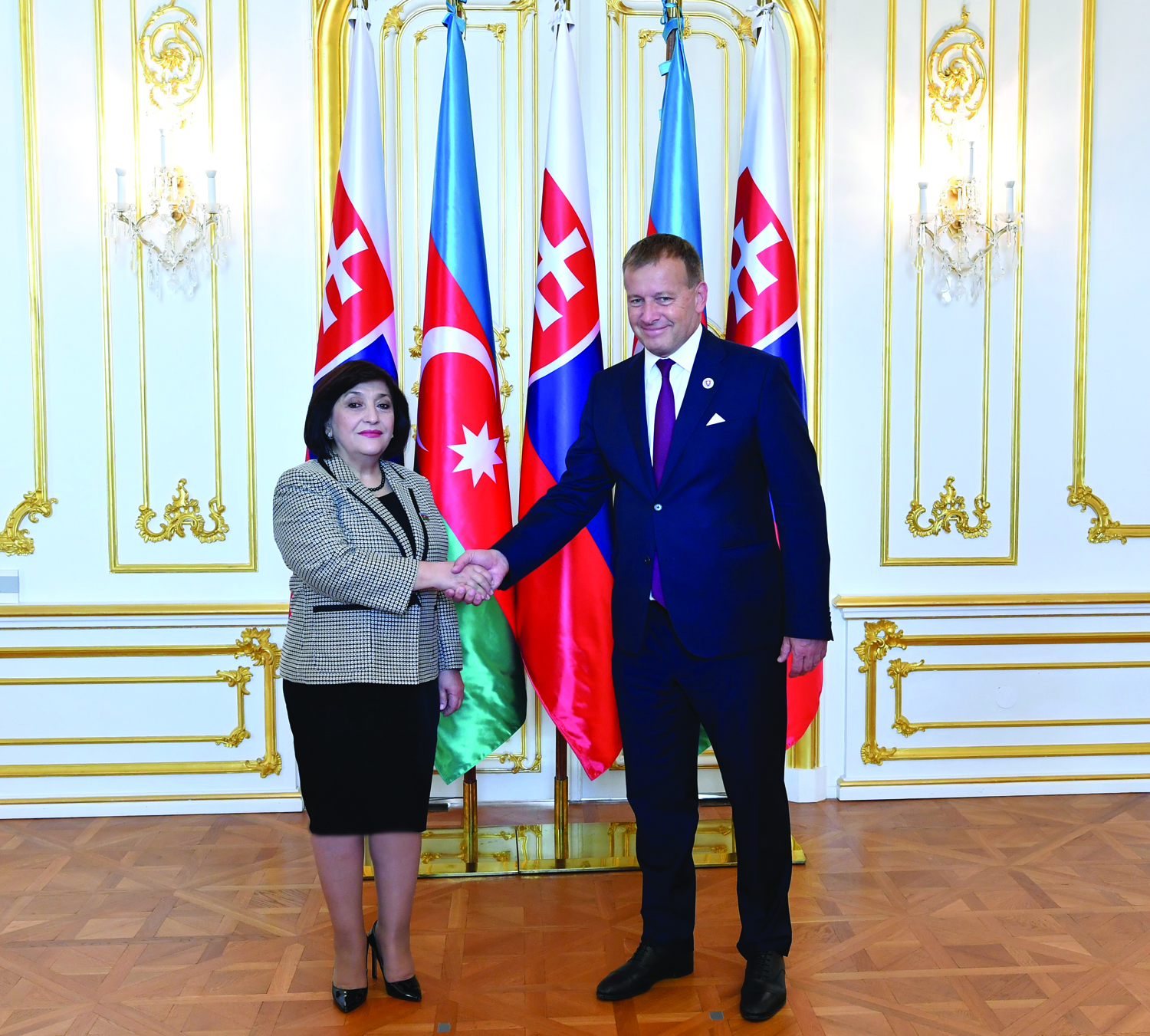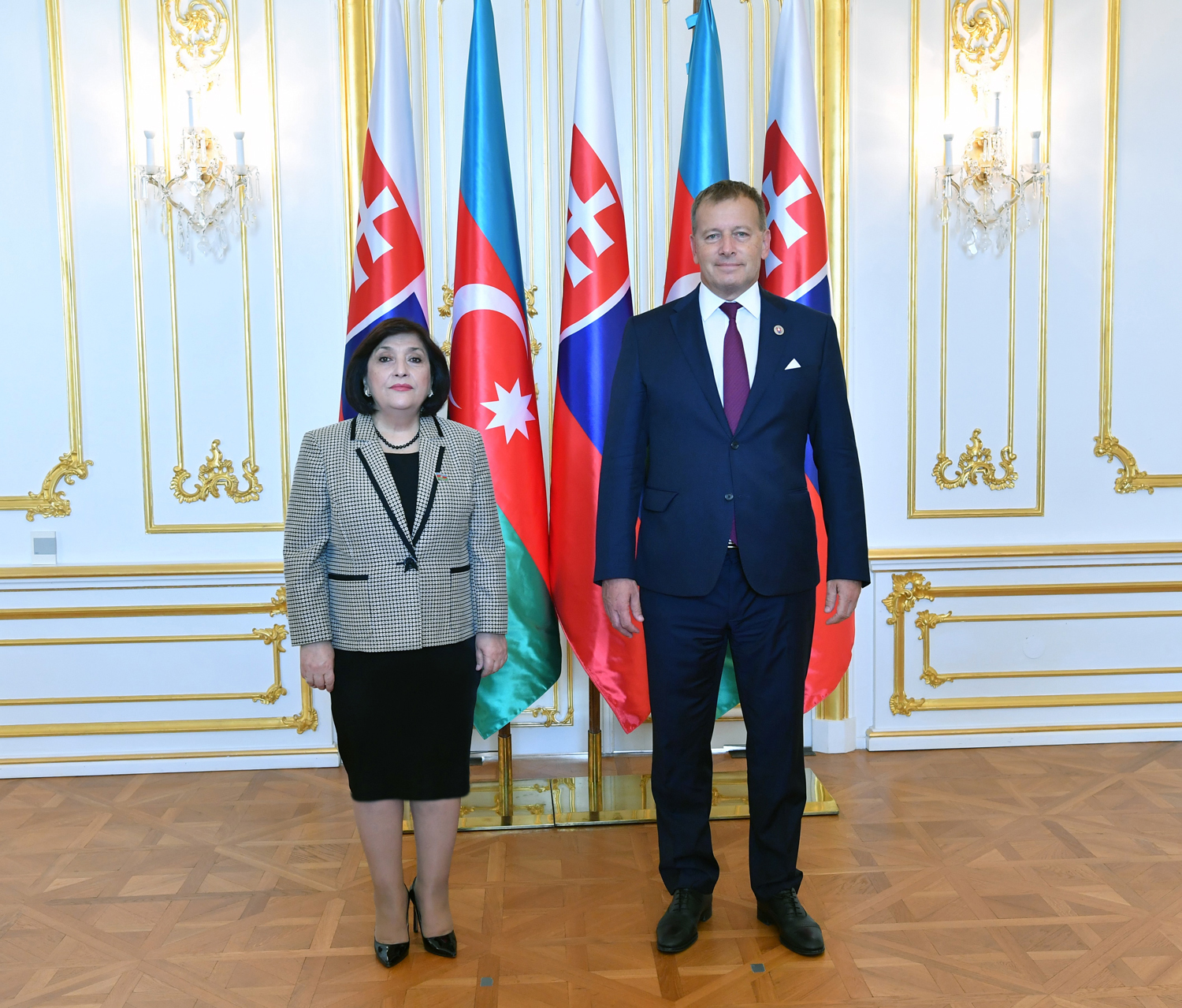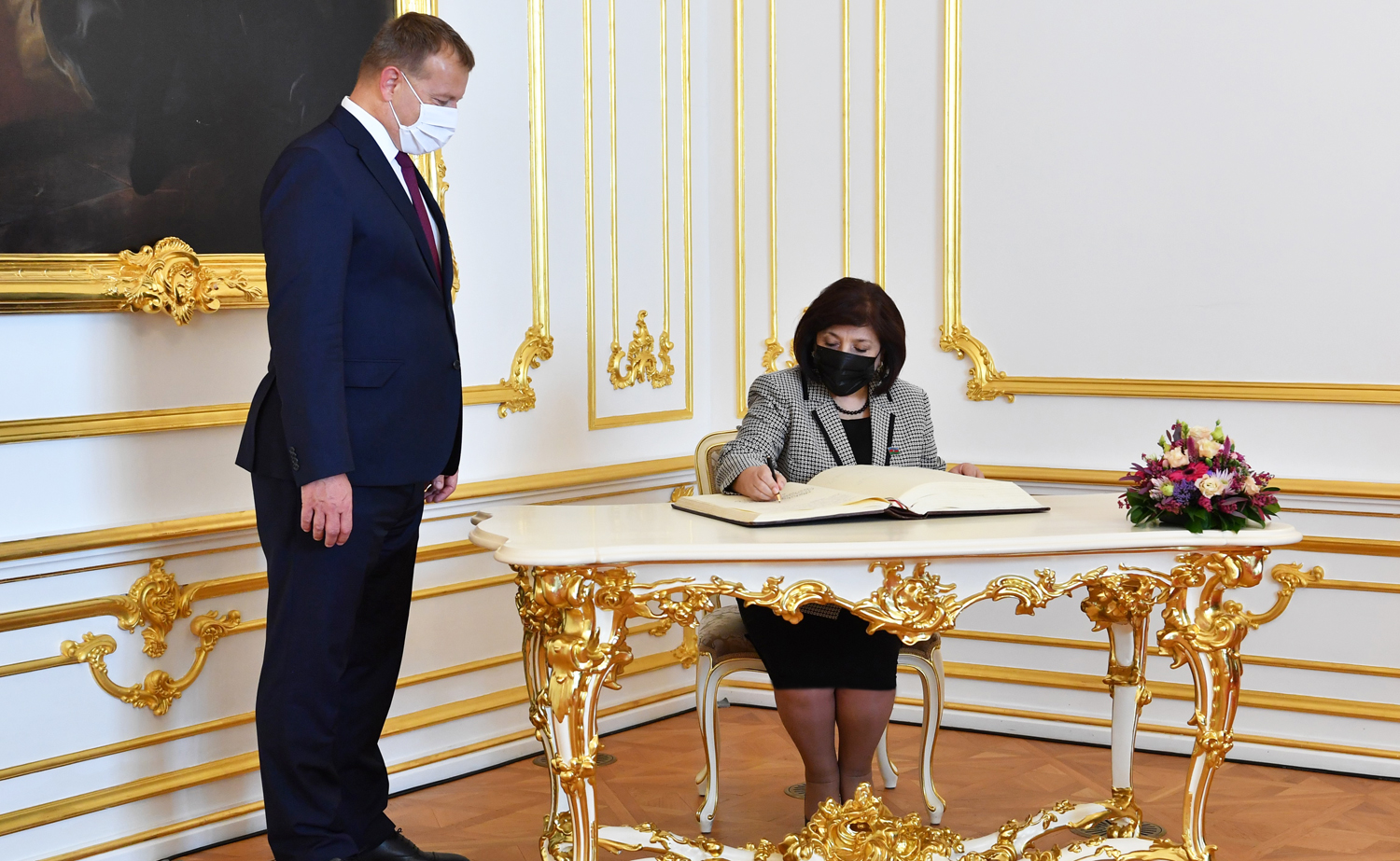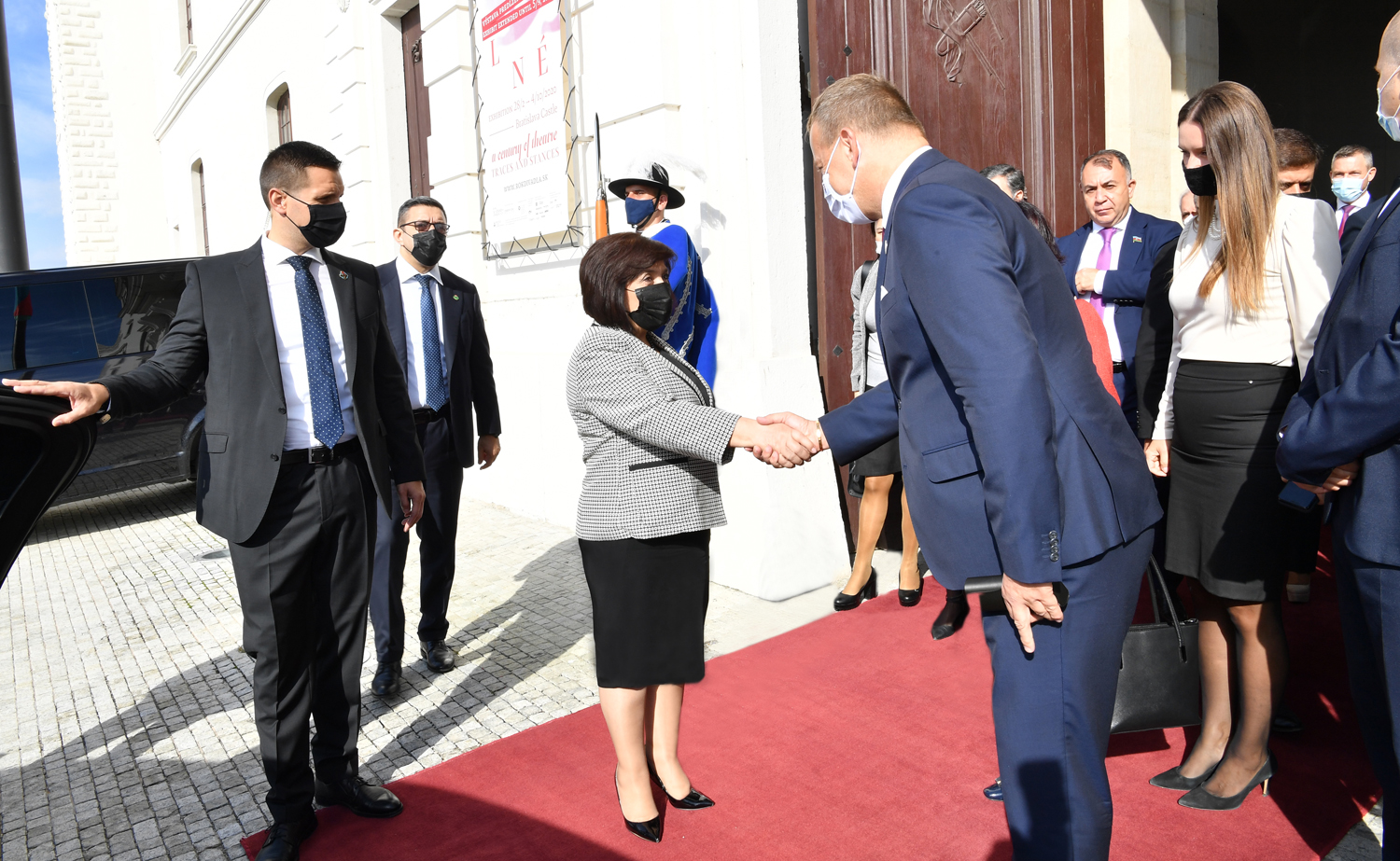Chair of Milli Majlis Sahiba Gafarova Meets Chairman of Slovak National Council Boris Kollár
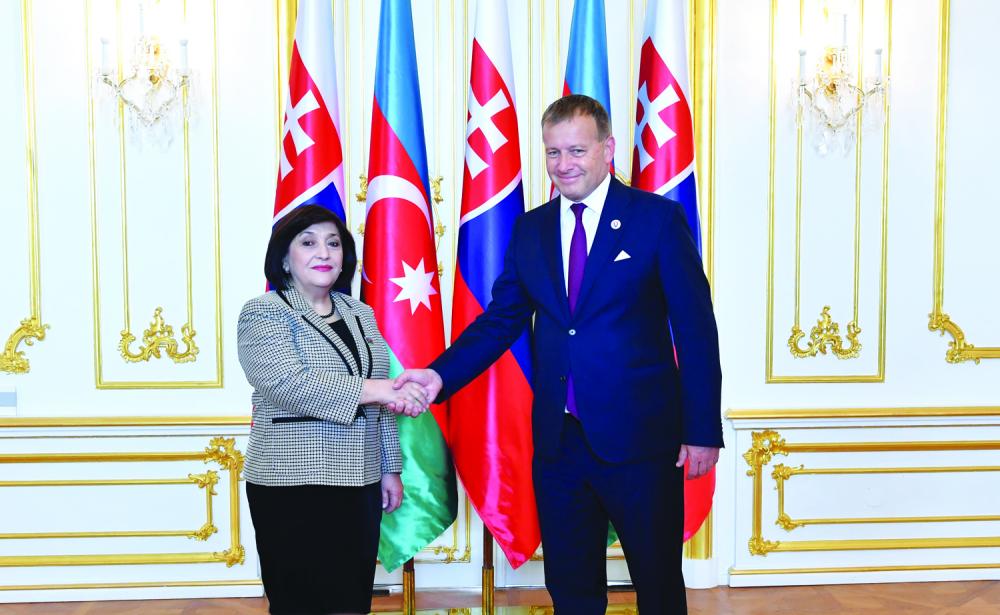
Chair of the Milli Majlis Sahiba Gafarova who is in the Slovak Republic on an official visit now met Chairman of the National Council of that country Boris Kollár on 8 October.
Boris Kollár began the conversation by welcoming Sahiba Gafarova and telling her that he believed that her visit was going to create a momentum behind the deepening of the relations between the two countries and their parliaments. Slovakia finds it very important to further its bonds with Azerbaijan and their continued advancement in the inter-parliamentary field mattered to both sides, in the opinion of Mr Kollár.
Sahiba Gafarova noted that that was a first the first ever official visit of a speaker of the Milli Majlis of Azerbaijan to the Slovak Republic and that there was a sound potential to tap to further the bilateral and multilateral relations between our countries. There will be meetings and discussions during the current visit; they will be certain to inject more energy in the progress of the bilateral connexions – including those between the two parliaments.
Speaker Sahiba Gafarova touched on Azerbaijan’s energy policy; she underlined the role our country plays in the European energy security architecture. The projects undertaken upon the initiative of Azerbaijan and involving Azerbaijan itself do not only foster the progress of all the engaged countries but also matter for diversification of the energy resource transport routes that lead to Europe.
The Chair of the Milli Majlis also spoke of our country’s remarkable victory in the 44 days’ Patriotic War. Thanks to that victory, Azerbaijan liberated its lands after almost thirty years of the Armenian occupation, made its national territory whole again and, while so doing, implemented all by itself the four resolutions of the UN Security Council.
The provocations of the Armenian side hinder the establishment of a sustainable peace in the region, Mrs Gafarova added before informing Mr Kollár thoroughly about Armenia planting armed terrorist groups in our liberated lands and about Armenia, again, having destroyed all our formerly captured towns, villages, historical and cultural heritage and mosques, and having also plundered our national treasures. The statement of 10 November was signed almost a year ago today; and yet, Armenia has not released the minefield maps whilst what fragments it has let surface are only 25 per cent accurate. Madame Speaker stressed that had close to 150 casualties, civilians and military servicemen alike, were either killed or seriously injured. So, Armenia continues to pose a serious threat to lives and security; on top of that, this is a scarlet violation of the international humanitarian laws.
President Ilham Aliyev signed a decree in July this year about re-drawing the economic regions within the territory of the Azerbaijan Republic; the two new economic regions of Garabagh and East Zangazur were formed subject to the presidential decree. Azerbaijan has already launched a large-scale restoration program in the liberated territories.
As the Chair of the Milli Majlis talked about the current state of the inter-parliamentary relations, she mentioned the input they were getting from the arrangement of reciprocal visits. The parliaments of Azerbaijan and Slovakia co-operate under the aegis of several international organisations. Having said that, certain biased decisions and partial statements made by legislators are liable to cast a shadow on the bilateral relations – for instance, there was a resolution that the Slovak Parliament adopted in November last year and the other one, entitled ‘On Nagorno-Karabakh’ and dated 1 April 2021. Such decisions are unacceptable and only cause regret, according to Mrs Gafarova.
Azerbaijan will be marking the thirtieth anniversary of the Khojali Genocide. On the night from the 25th to the 26th of February 1992, Armenia committed an act of genocide in the Azerbaijani town of Khojali destroying 613 people including 106 women, 63 children and 70 elders; 487 people, among them 76 children, were wounded severely; eight families were wiped out completely. Those people were only tortured and killed because of their ethnic background. The parliaments of several countries and a number of international organisations have already passed appropriate resolutions concerning that crime against humanity, that genocidal act, Mrs Gafarova remarked before expressing a hope that the Slovak parliamentarians, too, will initiate a recognition process regarding that massacre.
A Milli Majlis committee chairman Zahid Oruj and the leader of the working group for inter-parliamentary connexions with Slovakia Anar Mammadov who took part in that meeting shared their thoughts about the parliaments’ roles in the furtherance of the relations between the two countries and about the importance of the co-operation amongst their legislatures.
The Press and Public Relations Department
The Milli Majlis



